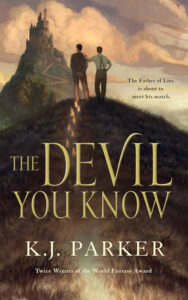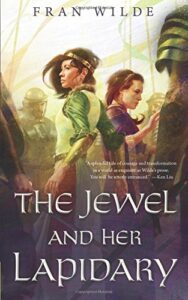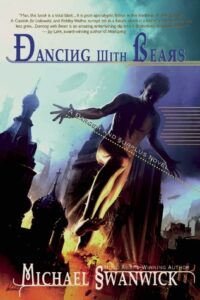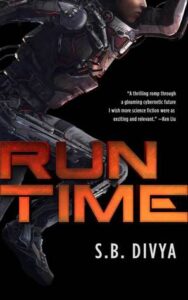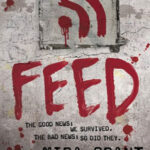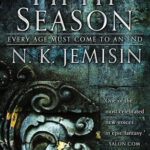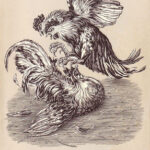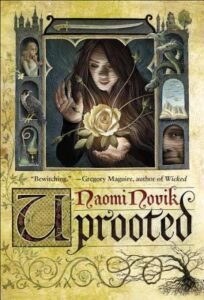 Uprooted, Naomi Novik
Uprooted, Naomi Novik
I notice other people comparing this book to The Goblin Emperor in reviews, because there is a distinctly hopeful tone to it. I think that’s probably why I enjoyed it and made that parallel myself: this isn’t grimdark, even though it could be. It’s a Polish-ish medieval setting, with feudalism and magic and armies, and with a great big encroaching wood which is second cousin to Tolkien’s Old Forest, but bigger and badder. And yet it turns out to be not so clear-cut, and there’s room at the end for growth and hope, rather than just destruction and violence. A chance for two worlds to meet.
It may not feel that way in some parts of the book, though: there is plenty of horrible moments, where corruption reaches out to touch everything and the only answer seems to be violence. People don’t get off lightly: there is death, there is a price paid. In that respect, it doesn’t feel quite as hopeful as The Goblin Emperor, which largely avoids outright violence.
Uprooted has a somewhat slow pace, at least at first; the narrator takes her time introducing us to the world, even with that corker of a first sentence: “Our Dragon doesn’t eat the girls he takes, no matter what stories they tell outside our valley.” Every detail means something, but it takes time to come together, and in the meantime the writing is what pulled me on — not just the build-up of the magic system, the building up of the characters, the mysteries revealed bit by bit, but also the quality of the prose. It felt solid, structured, knowing — I felt like I could trust the narration to get me where I needed to go, so I didn’t mind about the pace — another book I’m reminded of is Juliet Marillier’s Heart’s Blood, which makes sense given that both books grew out of fairytales to some degree or another, without being slavishly attached.
I also love that one of the big drivers of this book is Agnieszka’s concern and love for her friend, her home, the people around her. No grim swearing of vengeance here; in fact, that blind impulse to avenge, to push back when pushed, is explicitly criticised, while Agnieszka’s slower understanding proves the important part.
I enjoyed it a lot, and it stands alone beautifully, with an ending that has just enough room to breathe. It’s not quite The Goblin Emperor for me (the narration did feel like it slowed down a bit too much here and there), but it’s good.


